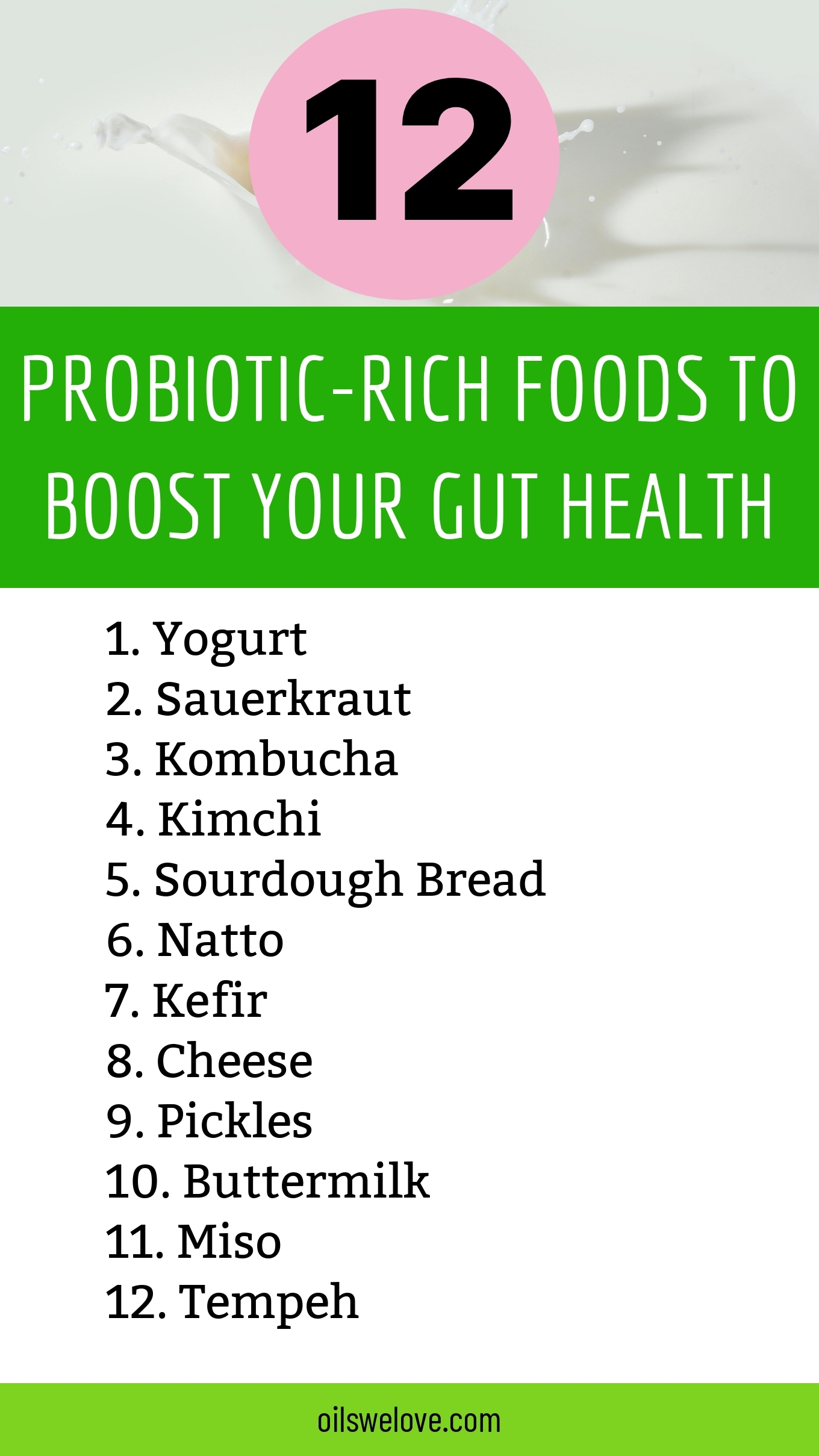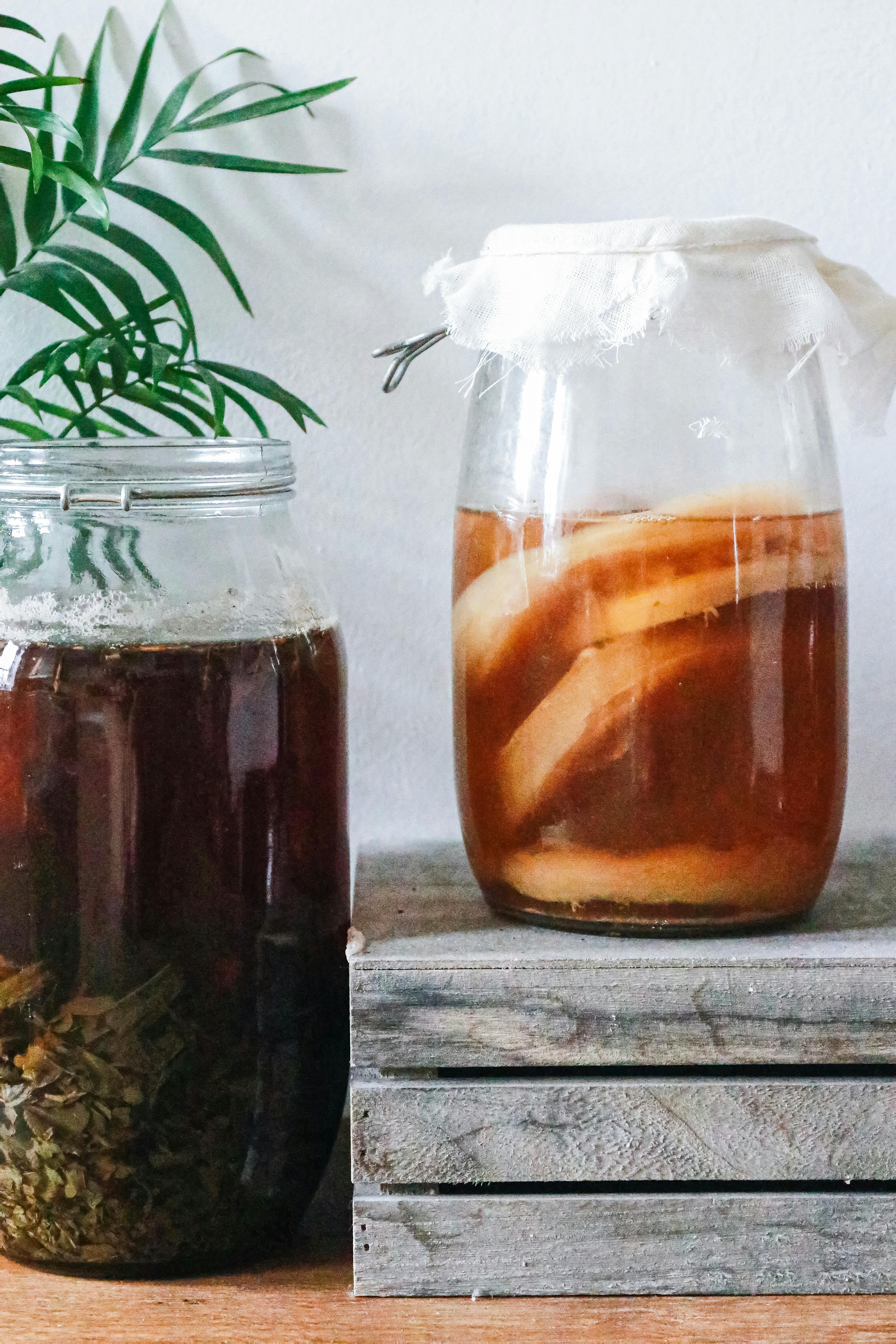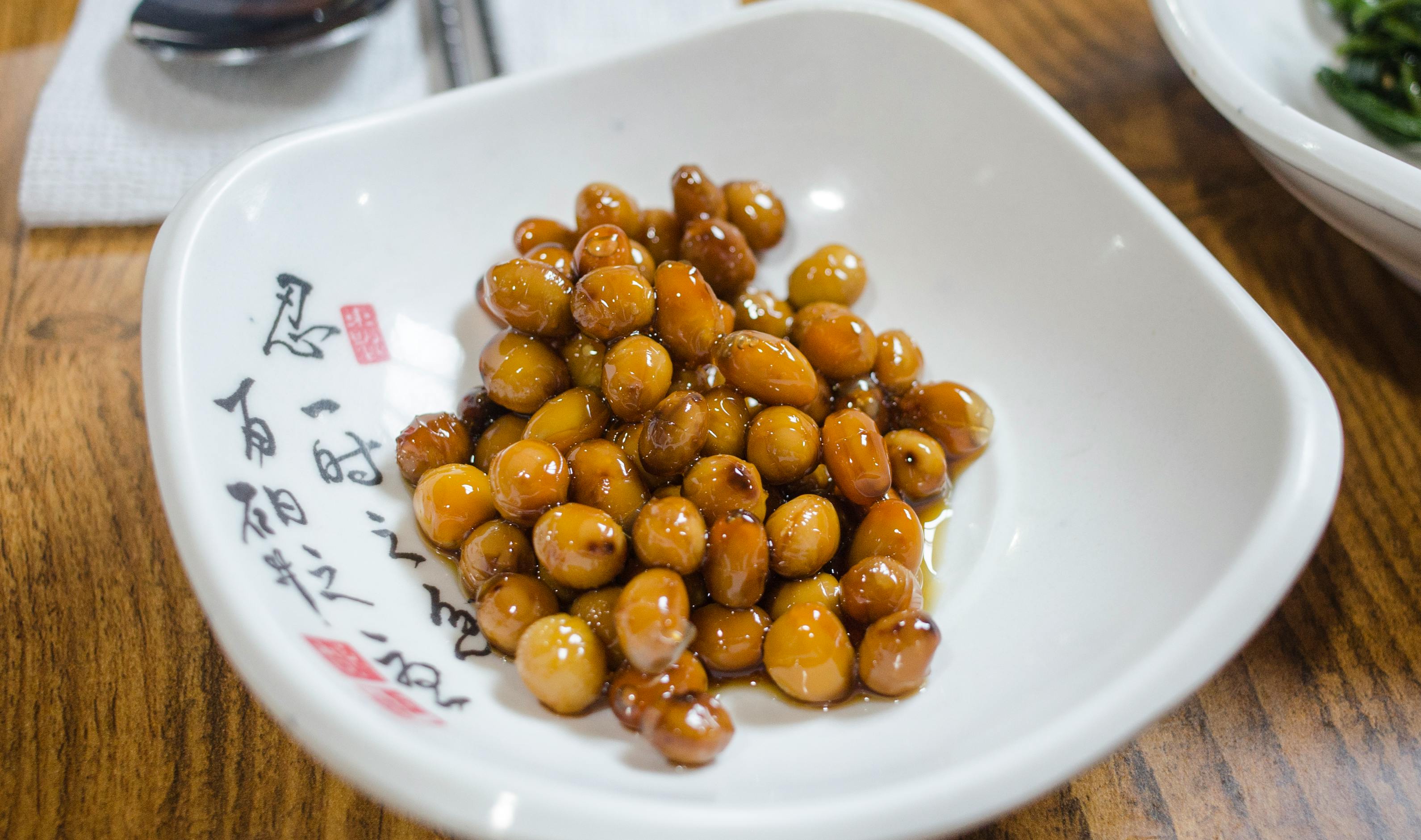Good gut health is crucial for overall well-being, and one effective way to achieve this is by incorporating probiotic-rich foods into your diet.
Probiotics are beneficial bacteria that support a balanced gut microbiome, aiding in digestion, boosting immunity, and even improving mental health.
This article will introduce you to 12 foods teeming with these gut-friendly microbes. From tangy fermented veggies to creamy dairy delights, you’ll discover diverse and delicious options to enhance your gut health.

Top 12 Probiotic Foods for a Healthy Gut

- 2-Week anti-inflammatory meal plan.
- 45 Foods that Cause Inflammation
- 31 Things to Avoid on Food Labels
- Grocery Lists. Challenges. Symptoms Tracker
Probiotic foods are a fantastic way to enhance your gut health. They are rich in beneficial bacteria that can improve digestion, boost the immune system, and even positively affect mood and mental health. Let’s dive into a list of 12 probiotic-packed foods that should definitely find a place in your kitchen.
1. Yogurt
Yogurt is one of the best-known probiotic foods. Made from milk fermented by friendly bacteria, mainly lactic acid bacteria and bifidobacteria, yogurt is not only a great source of probiotics but also rich in calcium and protein.
Consuming yogurt has been linked to numerous health benefits, including improved digestion and a better immune system. Opt for plain, unsweetened varieties to avoid added sugars. For those who are lactose intolerant, there are lactose-free and plant-based options available.
Learn more about the benefits of yogurt.
2. Sauerkraut
Sauerkraut is finely shredded cabbage that has been fermented by lactic acid bacteria. It is not just a great source of probiotics but is also high in fiber and vitamins C, B, and K.
The fermentation process enhances the digestibility of the cabbage and increases its nutrient profile. Sauerkraut can be a delightful addition to sandwiches, salads, or even enjoyed as a side dish.
Discover more about sauerkraut and its health benefits.
3. Kombucha
Kombucha is a fermented tea that contains a number of probiotic bacteria. Made by fermenting sweetened tea with a symbiotic culture of bacteria and yeast (SCOBY), kombucha is also rich in tea polyphenols and acetic acid, which have antimicrobial properties.
Regular consumption of kombucha can contribute to improved digestion and liver health. It comes in various flavors and can be a refreshing alternative to sugary drinks.
Read more about the benefits of kombucha.

4. Kimchi
Kimchi is a spicy Korean side dish, made from fermented cabbage and other vegetables. It contains the lactic acid bacterium Lactobacillus kimchii as well as other lactic acid bacteria that may benefit digestive health.
Besides being a probiotic powerhouse, kimchi is packed with vitamins and minerals, and has been shown to help reduce inflammation and improve gut health. Incorporate it into your meals for an added spicy kick.
Explore more about the nutritional benefits of kimchi.
5. Sourdough Bread
Traditional sourdough bread is made with a fermented dough that contains lactic acid bacteria and wild yeasts. These bacteria can improve the digestibility of grains and have been shown to have probiotic properties.
Sourdough bread is easier on the stomach compared to regular bread due to its lower gluten content. It also has a distinctive tangy flavor that makes it perfect for sandwiches and toast.
Learn more about the benefits of sourdough bread.
6. Natto
Natto is a fermented soybean dish that’s popular in Japan. It is a great source of probiotics, particularly the bacterium Bacillus subtilis, and is also high in vitamin K2, which is important for bone health.
Natto has a unique, somewhat sticky texture and a strong flavor that may be an acquired taste. It’s often eaten with rice and is a staple in Japanese cuisine.
Find out more about natto and its health benefits.

7. Kefir
Kefir is a fermented milk drink that’s made with kefir grains, which contain several major strains of friendly bacteria and yeasts. It has a consistency similar to drinkable yogurt and a slightly tangy flavor.
Kefir is rich in probiotics, vitamins, and minerals, and is known for its ability to improve digestion and boost the immune system. It’s a versatile ingredient that can be used in smoothies, salad dressings, and baked goods.
Discover kefir and how it can benefit your health.
8. Cheese
Some types of cheese, particularly fermented cheeses like Gouda, mozzarella, cheddar, and cottage cheese, can contain probiotics. These cheeses are not only delicious but also beneficial for gut health.
Fermented cheeses can contribute to improved digestive health and bone strength due to their high calcium content. Try incorporating them into your meals or enjoy them as a snack.
Learn more about the probiotic benefits of cheese.
9. Pickles
Pickles are cucumbers that have been fermented in a solution of salt and water. They are a great source of probiotics, as well as vitamin K, which is essential for blood clotting and bone health.
Fermented pickles, not the vinegar-brined variety, contain beneficial bacteria that can support gut health. They add a tangy crunch to sandwiches, salads, and snack plates.
Read more about the health benefits of pickles.
10. Buttermilk
Traditional buttermilk is the liquid left behind after churning butter from cream. It’s a good source of probiotics and can be a useful ingredient in cooking and baking.
Buttermilk is lower in fat than regular milk and is often used to make pancakes, biscuits, and dressings. It also contains essential nutrients like calcium, phosphorus, and riboflavin.
Find out more about the benefits of buttermilk.
11. Miso
Miso is a Japanese seasoning that’s made by fermenting soybeans with rice, barley, or other grains. It’s a good source of probiotics and is often used to make soups and sauces.
Miso is rich in essential minerals like manganese and zinc, and consuming it can help support digestive health. Its savoriness, known as umami, enhances the flavor profile of many dishes.
Explore more about the benefits of miso.
12. Tempeh
Tempeh is a fermented soybean product that originates from Indonesia. It’s a great source of probiotics and is often used as a high-protein substitute for meat.
Besides being probiotic-rich, tempeh is also packed with protein, vitamins, and minerals. It has a firm texture and a nutty flavor, making it a versatile ingredient for stir-fries, sandwiches, and salads.
Read more about the health benefits of tempeh.
Incorporating these probiotic foods into your diet can have numerous health benefits. From improving digestion to boosting the immune system, these foods are as delicious as they are nutritious. Start adding a few of these to your meals and experience the benefits of a healthier gut.




